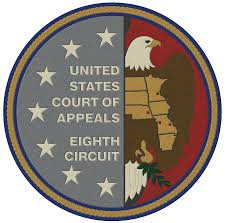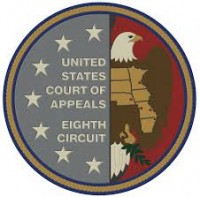 The United States Bankruptcy Appellate Panel for the Eighth Circuit recently held that filing a proof of claim on a time-barred debt is not, alone, a prohibited debt collection practice under the federal Fair Debt Collection Practices Act.
The United States Bankruptcy Appellate Panel for the Eighth Circuit recently held that filing a proof of claim on a time-barred debt is not, alone, a prohibited debt collection practice under the federal Fair Debt Collection Practices Act.
A copy of the opinion is available at: Link to Opinion.
Husband and wife debtors filed a Chapter 13 bankruptcy petition. A medical services provider filed a proof of claim shortly thereafter. After their Chapter 13 plan was confirmed, the debtors filed an adversary proceeding against the medical services provider for damages under the FDCPA, arguing that because the debt was time barred, the filing of a proof of claim was a false, deceptive, misleading, unfair or unconscionable means of collecting the debt.
The bankruptcy court granted the creditor’s motion for summary judgment, relying on Eighth Circuit precedent holding that the FDCPA is not violated when a debt collector attempts to collect a time-barred debt that is otherwise valid unless litigation is pending or there is a threat of litigation.
Equates a Proof of Claim With ‘Debt Collection’
On appeal, the Court began its analysis by agreeing with the debtors that the filing of a proof of claim in bankruptcy constitutes an attempt to collect a debt because it “is intended to result in some recovery for the creditor on the debt set out in the proof of claim.”
The creditor, relying on an earlier Eighth Circuit Court of Appeals’ decision, argued that without a threat of litigation or actual litigation, the FDCPA is not violated when a debt collector attempts to collect on a time-barred debt that is otherwise valid. Thus, the Court noted, the question before it was whether the filing of a proof of claim constitutes a threat of litigation or actual litigation. Relying on Eighth Circuit precedent, the Court found that the filing of a proof of claim on a stale or time-barred debt “invokes the litigation machinery.”
The Court then turned to the ultimate question presented by the appeal—whether filing a proof of claim on a stale debt constitutes a false, misleading, deceptive, unfair or unconscionable debt collection practice under the FDCPA.
No Per Se Violation
The debtors argued that the Court should follow the decision of the Court of Appeals for the Eleventh Circuit in Crawford v. LVNV Funding, LLC, 758 F.3d 1254 (11th Cir. 2014), which held that the filing of a proof of claim on a time-barred debt in a Chapter 13 bankruptcy violates the FDCPA under that Circuit’s “least sophisticated consumer” standard.
The Court pointed out that the Eleventh Circuit’s reasoning in Crawford focused on the harm to debtors and the bankruptcy estate caused by the filing of a proof of claim on a stale debt because it forces the debtor or trustee to object to the claim, failing which the claim would be allowed automatically and paid, at least in part, to the detriment of other creditors.
The Court then surveyed post-Crawford decisions outside of the Eleventh Circuit that reached a different conclusion based on protections provided to debtors by the bankruptcy code’s claims allowance process. For example, the Court agreed that debtors in bankruptcy frequently are represented by counsel and trustees are under fiduciary obligations to all parties, having a duty to object to unenforceable claims, protections that don’t exist when a debtor is facing a non-bankruptcy collection lawsuit. Also, the Court agreed that debtors have less at stake in the bankruptcy claims allowance process than they do when facing a judgment in a collection action because a creditor holding an allowed unsecured claim typically receives only a pro rata share of available funds and the unpaid portion of its claim is discharged.
The Court ultimately rejected the holding in Crawford, reasoning that not every filing of a proof of claim based on a time-barred debt automatically violates the FDCPA, and that to the extent possible, the bankruptcy code and FDCPA should be construed to give effect to both laws based on the basic rule of statutory construction established by the Supreme Court.
The Court reasoned that because the debtors had listed the debt in their bankruptcy petition, they essentially invited the creditor to file a proof of claim. The creditor’s acceptance of the invitation, by filing a proof of claim, could not be misleading. In addition, although the debt was subject to an expired limitations period, under applicable state law the debt was not eliminated, but was only unenforceable in a court of law. Because the debt remained subject to non-judicial collection activity, the Court concluded that it would be offensive to allow debtors to sue a creditor under the FDCPA for doing what it was invited to do by the bankruptcy claims process. Accordingly, the judgment of the bankruptcy court was affirmed.
Editor’s Note: Maurice Wutscher is presently defending Crawford-type claims for clients before bankruptcy, trial or circuit courts in the First, Third, Fourth, Seventh, Eighth and Eleventh Circuits.


